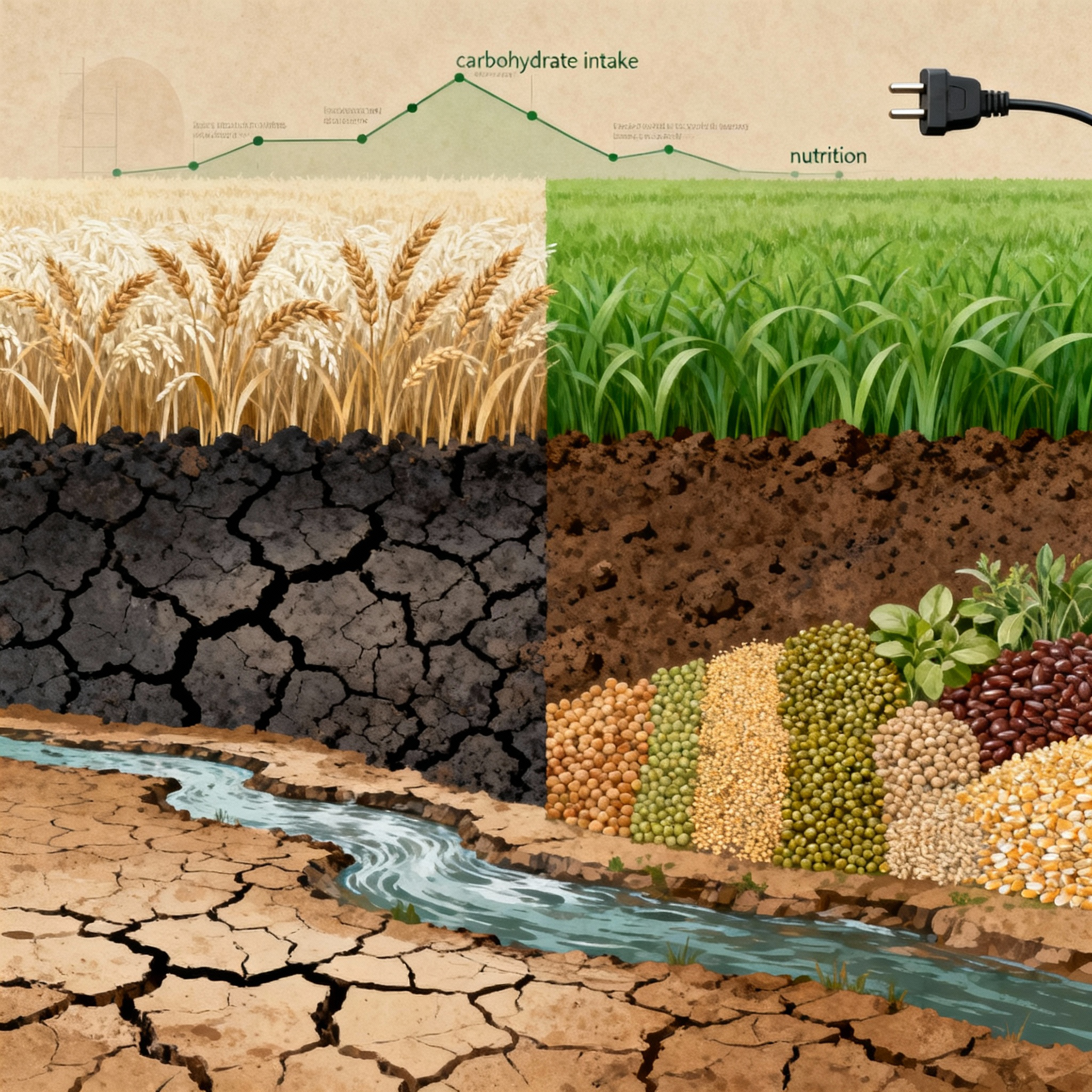1. The Growing Challenge Rice sustains more than half of the world’s population and is a cornerstone of food security. Yet, as climate extremes intensify and input-intensive farming expands, an old agronomic challenge has re-emerged: lodging — the bending or collapse of
Read More
With India’s current recorded food grain production and the latest population, it is possible for the country to broadly meet the recommended dietary intake set by ICMR for every individual, but distribution challenges, food diversity, and nutrition quality gaps still pose risks
Read More
Reductionism in science and the belief systems of religion are significantly shape the course of Indian agriculture, often fueling polarized narratives that impact policy and farm-level practice. This is happening in a context where farming and food systems are facing significant challenges
Read More
As I approach 60, I struggle with a dilemma—should I step aside to let the younger generation bring in new energy and updated knowledge, or should I continue holding on in the name of experience and wisdom? This dilemma became sharper when
Read More
My fascination with genetics began in school with N. Luchnik’s Why I Am Like My Dad (Mir Publishers), a book that posed the intriguing question, “What makes me resemble my father?” It introduced me to genes, heredity, and the significant role of environment in
Read More
Global carbon project paper on nitrogen budget shows India is second to China with respect to N2O emissions from agriculture particularly chemical fertilizers we need work on this with targeted approach to reduce Nitrogenous fertiliser use To have any realistic chance to
Read More
“Earth provides enough to satisfy every man’s needs, but not every man’s greed.”— Mahatma Gandhi ahatma Gandhi is one of the great sons of India who changed the way world can be understood and the way change can happen for greater good. While
Read More
భారతదేశ వ్యవసాయ రంగాన్ని తలుచుకోగానే స్ఫురించే మొదటిపేరు డాక్టర్ ఎం.ఎస్. స్వామినాథన్. వ్యవసాయంలో ఆధునిక విధానాలను ప్రవేశ పెట్టడం ద్వారా ఆహార భద్రతను పెంచి దేశానికి ఆయన హరిత విప్లవ పితామహులయ్యారు. ‘ఓడ నుంచి నోటికి’ అన్నట్టుగా ఉన్న కరువు పరిస్థితుల నుంచి, దేశాన్ని అన్నపూర్ణగా తీర్చిదిద్దడంలో ఆయన కృషి వెలగట్టలేనిది. అందుకు అనుగుణంగా ఎన్నో సంస్థల ఏర్పాటులో
Read More
A tireless advocate for empowerment of rural communities through local biodiversity, P V Satheesh will remain an inspiration A couple of decades ago, Pastapur village near Zaheerabad, Telangana, was the place for many of us looking for alternative models to alleviate
Read More
B-86-72, 1986 batch BSc (Ag), 1990 Msc (Ag) batch రెండు తరాలుగా వ్యవసాయం చేయని కుటుంబం నుంచి వచ్చి వ్యవసాయ విద్య నేర్చుకోవటం కోసం బాపట్ల వ్యవసాయ కళాశాల లో 1986 లో B.Sc (Ag) లో అడ్మిషన్ తీసుకున్నాను. మా నాన్నగారు, తాత గారు కూడా రైల్వే లలో పనిచేసారు. మా అమ్మగారు వ్యవసాయ
Read More







Recent Comments